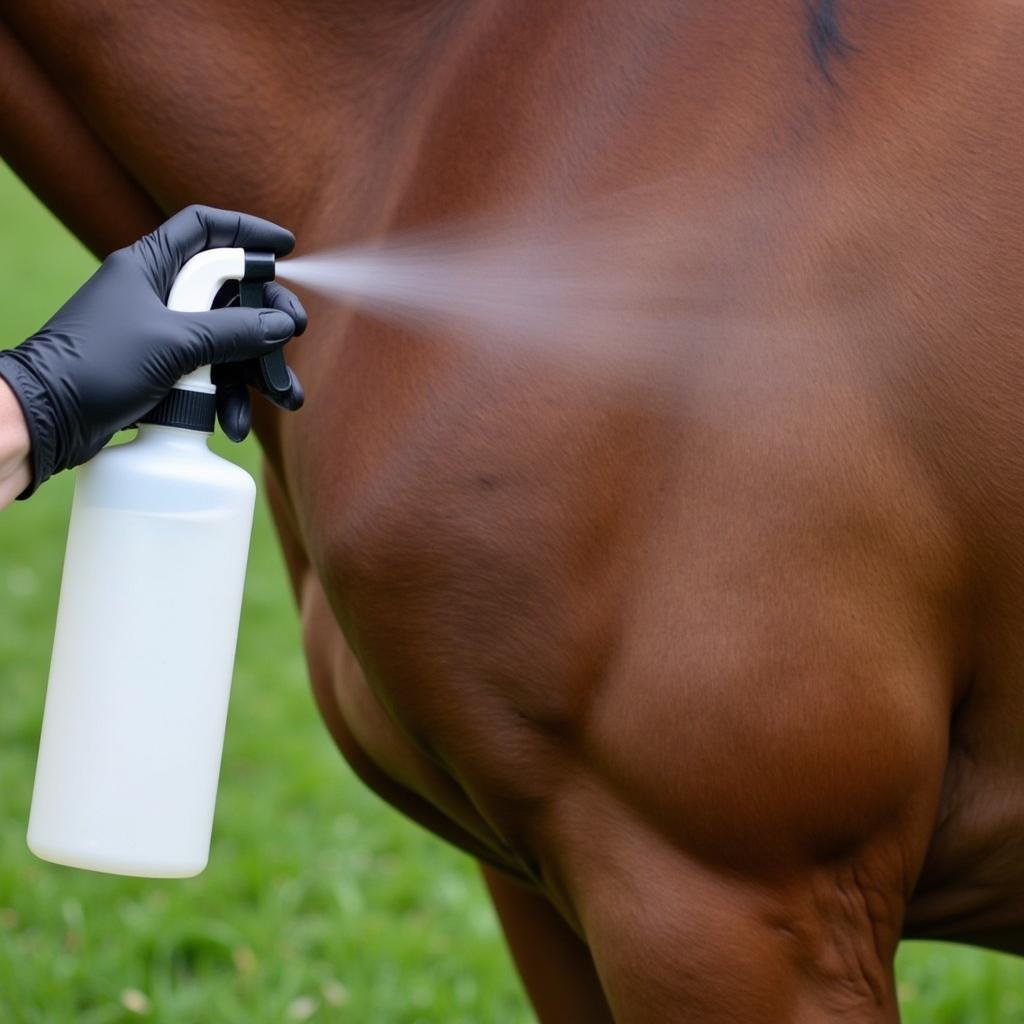Marigold spray, a natural remedy derived from the vibrant marigold flower, has gained popularity among horse owners for its potential benefits in equine wound care. This article delves into the science behind marigold spray, its applications, and considerations for incorporating it into your horse’s first-aid kit.
Understanding Marigold’s Healing Properties
For centuries, marigold (Calendula officinalis) has been revered for its medicinal properties. The petals of this sunny flower contain potent compounds, including flavonoids, triterpenoids, and essential oils, known for their:
- Anti-inflammatory effects: Reducing swelling, redness, and discomfort associated with wounds.
- Antimicrobial action: Inhibiting the growth of bacteria and fungi, potentially preventing infections.
- Wound healing promotion: Stimulating collagen production and tissue regeneration, accelerating the healing process.
 Close-up of a marigold flower
Close-up of a marigold flower
How Marigold Spray Benefits Horses
Marigold spray offers a gentle yet effective approach to addressing various equine wound types:
- Minor cuts and abrasions: The spray’s antiseptic properties help cleanse and protect wounds from infection, while its anti-inflammatory action soothes irritation.
- Skin irritations: Marigold spray can provide relief from itching and inflammation caused by insect bites, allergies, or contact dermatitis.
- Wound healing support: Regular application can encourage healthy granulation tissue formation and minimize scarring.
- Hoof care: Some horse owners find marigold spray beneficial for maintaining hoof health, particularly in cases of dryness, cracks, or thrush.
Choosing and Using Marigold Spray for Your Horse
When selecting a marigold spray, opt for products specifically formulated for equine use. Ensure the ingredient list is free from harsh chemicals, additives, or fragrances that could irritate your horse’s skin.
To use marigold spray effectively:
- Cleanse the wound: Gently remove any dirt or debris using lukewarm water or a mild antiseptic solution.
- Shake the bottle well: This ensures the ingredients are evenly distributed.
- Spray liberally: Hold the bottle a few inches away from the affected area and apply a generous coating of marigold spray.
- Allow to air dry: Let the spray dry naturally before bandaging or covering the wound, if necessary.
- Repeat application: Depending on the severity of the wound, reapply the spray 2-3 times daily or as directed by your veterinarian.
 Applying marigold spray to a horse's wound
Applying marigold spray to a horse's wound
Precautions and Veterinary Consultation
While marigold spray is generally safe for horses, it’s essential to consult with your veterinarian:
- Before using on open wounds: Especially if the wound is deep, bleeding profusely, or shows signs of infection.
- If your horse has known allergies: Although rare, sensitivities to marigold can occur.
- If you observe any adverse reactions: Discontinue use and contact your veterinarian if you notice increased redness, swelling, discharge, or any signs of discomfort in your horse.
“Marigold spray can be a valuable addition to your horse’s first-aid arsenal, offering a natural and effective approach to supporting wound healing and skin health. However, always prioritize veterinary guidance to ensure appropriate treatment for your equine companion.” – Dr. Emily Carter, DVM
Conclusion
Marigold spray provides a natural, gentle, and potentially effective option for supporting wound healing and maintaining skin health in horses. By understanding its benefits, choosing the right product, and using it responsibly, you can incorporate this time-tested remedy into your horse’s care regimen.
Remember, while marigold spray can be a valuable tool, it should not replace professional veterinary care. Always consult your veterinarian for any concerns about your horse’s health or before starting any new treatments.